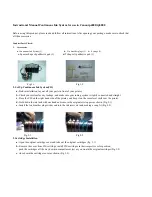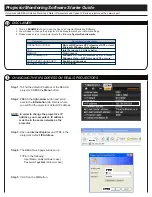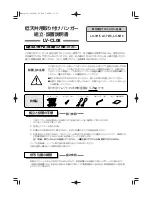
COB-Id
DLC
Byte0
Data Frame
Byte7
180h
+ Node-Id
length
Data Frame max 8 Byte
SDO
COB-Id
Default COB-Id
Master to Slave
600h + Node-Id
67Fh
Slave to Master
580h + Node-Id
5FFh
Transmission type
example for TPDO-1
COB-Id
1800-1
Transmission Type
1800-2
Inhibit Time
1800-3
Event Timer [ms]
1800-5
Cyclic Asynchronous
FEh
1 .. 07FFFh
1 .. 07FFFh
Change of State
FEh
1 .. 07FFFh
0
Synchronous
N = 1 .. 240
-
TPDO Disable
80 00 xx xx
-
-
TPDO Enable
00 00 xx xx
© by ASM GmbH
MAN-PRDS-E-17 21
www.asm-sensor.com / USA: www.asmsensors.com
Service Data Object (SDO) COB-Id
Service data objects (SDO) provide a peer to peer communication between master and slave. The
communication object identifier (COB) of the SDO is defined by the Node-Id.
Process Data Object (TPDO)
Real time data transfer is provided by Process Data Objects (PDO). The PDO mapping is fixed.
The PDO COB-Id is by default setting derived from the Node-Id (Predefined Connection Set) but
may be changed to application specific values by PDO COB-Id 1800-1, 1801-1, ... . DLC defines
the length of the data field.
Transmission behaviour of TPDO-1, -2, -4 is configurable by Communication Parameter PDO COB-
Id 1800, 1801, ... sub-indices -1, -2, -3 and -5.
Transmission type «cyclic asynchronous» triggers TPDO-transmission periodically with a time
period defined by the event timer.
Transmission type «change of state» will be enabled If the event timer is set to «0». This will trigger
TPDO-transmission on change of the position value where «Inhibit time» defines a minimum time
delay between consecutive TPDOs.
In «synch mode» a TPDO is transmitted on reception of a number of one or multiple SYNC
commands.
Enable or disable a TPDO by setting Bit 31 of the COB-Id ‘0’ resp. ‘1’ (Default: «0» Enabled).
POSIROT
®
– PRDS
Output CANopen
















































